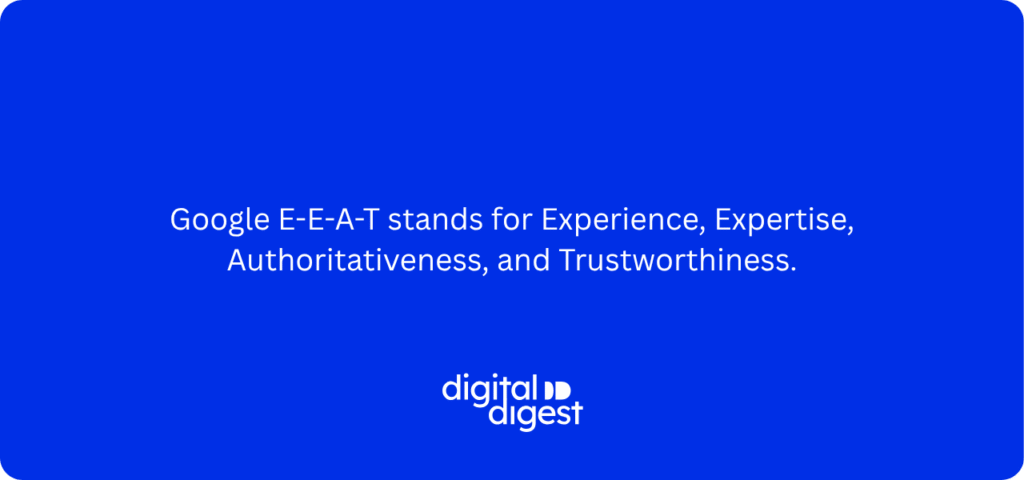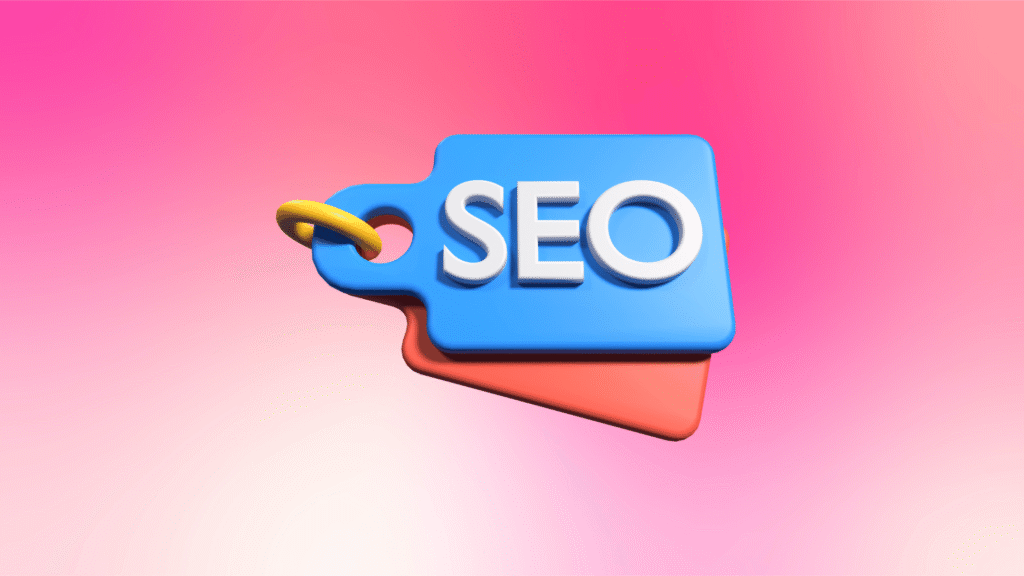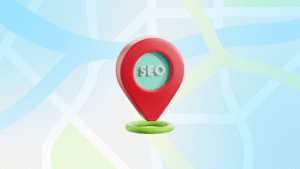SEO can really give small businesses an competitive advantage in search engines (Google, Bing etc.), and with search engines being the first point for almost 68% of all online experiences – This explains why businesses must focus on its search visibility.
So, what does this mean for the everyday businesses? and why is it so important.
SEO benefits go way beyond the reach and influence of just search results. The top organic result on search pages gets an average of 27.6% of all clicks.
This gives businesses at the top of SERPs (search engine results page) a huge edge.
A very common question we hear from small businesses is “is SEO is worth the investment”
The answer simple answer is yes – and very rarely does SEO not have a requirement in some form for a business and its website.
While other channels such as paid ads – works well
SEO offers affordable long-term results that compound and continue to work non-stop.
So, with this baseline understanding, lets get into the 5 main benefits and what it will do for your business in 2025.
1. Increased visibility and reach
A good SEO campaign & implementation for a small businesses can lead to much better online visibility in both search results and AI models alike.
Let’s look at the ways SEO boosts your business presence visability.
Why ranking higher matters
The fight for visibility on search engine results pages (SERPs) is fierce – Small businesses at the top have a clear edge—the #1 organic result on a SERP gets a click-through rate of 27.6%.
Getting on the first page makes a big difference.
The numbers tell us that just 0.63% of Google Search users click results from the second page. A jump to the top spot can double your click-through rate compared to second place. The message is clear – if you’re not on page one, most potential customers won’t find you.
To name just one example, see these stats about ranking position:
- The top organic position gets that majority of clicks.
- Second position attracts 15% of clicks
- Third position pulls in 9% of clicks
Better rankings build authority naturally. Users trust websites that show up at the top of search results. This trust leads to better conversion rates and loyal customers.
Local businesses have even more at stake with the majority of local mobile searches leading to a purchase or action.
How SEO improves discoverability
SEO makes it easier for search engines to find, understand, and show your business to potential customers. Search engines like Google use complex algorithms to check websites, figure out content relevance, and choose which sites best match users’ searches.
Technical optimisation is a key way SEO helps with discovery. Google’s algorithm favors sites that offer great user experiences, including fast loading times, mobile optimization, easy navigation, and quality content. These technical elements tell search engines your site deserves recommendation.
Mobile optimisation needs special focus since over 60% of local searches happen on mobile devices. A 2023 study shows that mobile-optimised local sites cut bounce rates by up to 40%. Most people now use smartphones to browse the web, so search engines prefer mobile-friendly sites.
Backlinks play a big role in discovery—they’re links from other websites to yours. These external links show that your content is accurate, relevant, and useful. Links from trusted websites help your rankings more than those from lesser-known sources.
Fresh website content gets search engines to visit your site more often. More visits mean faster indexing of new content, which can boost your rankings. Small businesses using smart local SEO saw their organic search traffic grow by 33% in one year.
The role of keywords in visibility
Keywords form the base of good SEO strategy. They connect what people search for with your content. One expert puts it well: “Keywords are the only currency that search engines accept to help users find the desired information online”.
Good keyword research starts with knowing how your audience searches. This shows you the exact words and phrases potential customers use to find products or services like yours. The goal isn’t just finding popular keywords but finding terms with the right mix of search volume, competition, and relevance to your business.
Long-tail keywords—specific phrases with three or more words—often work best for small businesses. These longer phrases might get less search traffic, but they face less competition and match specific user intent better. Instead of targeting “online accounting services,” a small business might focus on “online accounting services for small business in the northwest”.
Smart keyword placement throughout your website helps visibility. Key places include:
- Page titles and headings
- Meta descriptions and tags
- URL structures
- Image alt text
- Body content
Modern keyword use needs a light touch. Stuffing keywords into content doesn’t work anymore—it can actually hurt your rankings. Focus on creating valuable content that uses keywords naturally while meeting user needs.
Keyword relevance affects how well your website matches what searchers want. Search engines check if your content gives users the information they need. SEO experts say “Google only wants to rank the content that’s the best and helpful resource for the searchers”.
Monthly search volume (MSV) helps guide keyword choices. This number shows how often people search for specific terms each month. An Ahrefs study found that 94.74% of keywords get 10 or fewer monthly searches, while just 0.0008% get over 100,000 monthly searches. This shows why you need a mix of different terms instead of just high-volume keywords.
Location-specific keywords work great for local businesses. Adding your location to key website elements helps Google rank you for local searches. A search for “home décor in Philadelphia” gives an edge to businesses that use that exact phrase.
The right keyword strategy determines who finds your business online. Quality content with industry-relevant keywords increases your visibility with target audiences. More content with strategic keywords means better chances of being seen.
Smart keyword research and use lets small businesses compete with bigger companies for search visibility. This creates fair competition where smaller operations can reach lots of people without huge marketing budgets.
2. Builds trust and credibility
Trust and credibility are the foundations of successful small business marketing – potential customers who find your business online don’t just look for products or services—they evaluate whether your company deserves their confidence. Small businesses just need to build this trust through effective SEO. This creates lasting customer relationships and strengthens your brand reputation.
How search rankings influence trust
Your search results position directly shapes how customers notice your business’s credibility. Studies show that users automatically trust websites with higher search rankings. This isn’t just a coincidence—Google’s sophisticated evaluation systems back this up.

Google’s algorithms now place their most important focus on Experience, Expertise, Authoritativeness, and Trustworthiness (E-E-A-T) to determine search rankings. These factors have become core criteria to assess content quality and website reliability. Top positions tell potential customers that Google—a trusted authority—thinks your business is credible enough to recommend.
High search rankings work like prime retail space in the digital world. A storefront on a prestigious street creates immediate quality impressions. The same happens when your business appears on Google’s first page. This psychological edge gives small businesses a significant advantage in building customer confidence.
Better visibility and trust create an upward spiral. Your improved search position helps more people find and interact with your business. These engagement signals boost your rankings further. Your enhanced visibility helps establish your brand as a leading industry voice. This especially helps small businesses compete against larger corporations.
The impact of consistent content
High-quality, informative content proves your expertise and builds authority in your field. This content strategy serves two vital purposes: it gives search engines valuable information while making your brand a trusted thought leader.
Search engines love regularly updated content. It shows your site stays active and relevant, which encourages more frequent crawling and indexing. Fresh content also brings visitors back and encourages customer loyalty. Your consistent publishing of valuable resources shows you care about helping your audience, not just selling to them.
Quality matters more than quantity in 2025. Google really understands how to look for content that answers users’ questions and solves their problems – rather than just be AI words lifted onto a page.
Small businesses can build a solid reputation by delivering this value consistently – driving better conversions and customer retention.
Content that shows your specialized knowledge helps meet Google’s E-E-A-T criteria. You might include:
- Industry insights and analysis
- Step-by-step guides addressing common customer challenges
- Case studies demonstrating successful outcomes
- Original research or data collection within your field
Each piece of meaningful content proves your business’s competence and reliability. This approach helps smaller businesses build credibility like their larger competitors, even with fewer resources.
Using reviews and schema for authority
Customer reviews build powerful trust in today’s digital marketplace. Almost all consumers (99.9%) read online reviews. Even 57% check them while shopping in stores. People trust these testimonials as much as recommendations from friends and family.
Small businesses can benefit in multiple ways by managing reviews as part of their SEO strategy. Reviews boost local search rankings and help businesses appear in Google’s valuable local 3-pack results. They also provide social proof that builds confidence with potential customers who might hesitate to try a smaller business.
The best review strategy involves collecting reviews and engaging with customers. Ask happy customers to share their experiences to keep fresh feedback coming. You should also respond to all reviews—especially negative ones. Professional, thoughtful responses show you care about customers and handle challenges well.
Schema markup helps boost credibility through SEO. This special website code helps search engines better understand your content’s meaning. Well-implemented schema creates context that helps search engines show your best content to the right people.
Local business schema really helps small companies stand out in Google Search and Maps. This structured data lets Google show specific business information in knowledge panels and carousels, including:
- Business hours
- Department details
- Physical location
- Services offered
- Ratings and reviews
Review schema lets Google enhance your search results with star ratings and review snippets. These visual elements make your listing stand out and build instant credibility. Businesses using review schema often get more clicks than those without it.
Schema markup makes it easier for search engines to understand your content and show it to potential customers. You’re helping Google help you by improving visibility in ways that build trust.
Strategic review management combined with technical schema creates a strong foundation for online authority. Remember that being genuine matters most—search engines can spot and punish fake attempts. Focus on building real relationships through every customer interaction. Use SEO techniques to increase trust rather than manufacture it.
These trust-building strategies offer some of the most affordable investments for small businesses in competitive markets. Making credibility your SEO priority creates benefits way beyond the reach and influence of rankings and traffic metrics. Trust becomes your most valuable business asset—one that keeps giving returns long after marketing campaigns end.
3. Drives targeted traffic to your site
SEO helps small businesses attract highly targeted website traffic. This benefit stands out from broad marketing approaches that try to reach everyone. Your business connects with people who actively search for your offerings. These precise connections turn casual browsers into potential customers.
Understanding user intent
People search with specific goals in mind. Their search queries reveal the “why” behind what they type into search engines. Your content’s success depends on understanding these intentions. Better rankings and relevant traffic come from content that matches what searchers want.
Search intent typically falls into four main categories:
- Informational intent – Users seeking knowledge or answers (e.g., “how to fix a leaky faucet”)
- Navigational intent – Users looking for a specific website or page (e.g., brand names)
- Transactional intent – Users ready to make a purchase (e.g., “buy kitchen cabinets”)
- Commercial investigation – Users researching products before buying (e.g., “best kitchen remodeling ideas”)
Your SEO success depends on knowing where potential customers are in their buying process. Each stage needs content that meets their expectations and creates meaningful connections. Searches with words like “who,” “what,” “learn,” and “ideas” show users want to learn something. Their searches change to include specific products and brand names as they get closer to buying. Eventually, they use words like “buy,” “discount,” and “price”.
Without doubt, your business grows stronger when SEO strategy aligns with user intent. Small businesses can streamline their efforts by analyzing what people search for. This helps you pick keywords that match your expertise and create useful content that ranks well.
Organic vs paid traffic
Small business marketing strategies work better with clear knowledge about organic and paid traffic differences. Organic traffic comes from unpaid search results. Paid traffic comes from advertisements.
Organic search brings in 53% of all online traffic and makes up 44% of revenue. These numbers show why small businesses should focus on organic visibility for online growth.
Research proves that people trust organic search results more than paid ads. Organic results convert better because users prefer them. Small businesses gain an edge when they rank well naturally.
Money-wise, SEO offers better value than paid advertising. Paid ads bring quick visibility but need constant spending—traffic stops when you stop paying. SEO gives small businesses a budget-friendly way to attract visitors. Rankings take time to build, but they keep bringing visitors without ongoing costs.
Here are the main differences:
SEO builds trust and authority gradually. Results take longer but last without constant payment. Your investment grows like bank interest, with early efforts bringing bigger returns over time.
Paid traffic shows results right away but costs never stop. Most ad spending goes to people who won’t become customers—few viewers actually want your product.
Small businesses with tight marketing budgets benefit from SEO’s sustainable approach to online visibility. Unlike ads that need constant funding, SEO keeps working day and night.
Why targeted traffic converts better
Quality visitors matter more than high numbers. SEO brings people who really want what you offer. This focused approach directly improves your sales.
Better leads come from better traffic, which reduces customer acquisition costs. SEO makes your business easier to find for the right people. Higher rankings mean reaching more interested buyers.
People actively searching for your solutions become leads and clients more often. Keywords that match your offerings bring potential customers already looking to buy.
User behavior shows why this works. Visitors finding you through relevant searches come with purpose. Their search terms show they need what you offer. These visitors take action more readily—they sign up, buy things, and fill out forms.
This targeted strategy builds a loyal visitor base that engages with content and buys repeatedly. Your website becomes an industry resource when you create valuable, targeted content. Interested visitors generate more leads.
Numbers prove this works better. SEO lets businesses target specific keywords matching their products. Even small companies can compete with bigger ones by reaching exactly the right audience.
Small businesses save resources with targeted traffic. Marketing efforts reach interested buyers instead of everyone. Strong communities grow around your business, leading to lasting success.
SEO helps your small business show up when buyers search… A local plumbing company might target phrases like “how to fix a leaky tap” or “leaking shower, how do i fix it?”… These types of searches are rapidly increasing with AI models being so common now … users are searching longer queries and questions, which gives local businesses a great opportunity for content marketing to these searches.
Ultimately detailed answers to these questions improve rankings and show expertise that turns visitors into customers.
4. Boosts sales and lead generation
SEO for small businesses does more than attract visitors – it affects your bottom line by bringing in qualified leads and boosting sales. The real measure of SEO success goes beyond traffic. It shows how well that traffic turns into paying customers. Let’s get into how good search optimization turns curious visitors into loyal clients.
How SEO supports the sales funnel
A sales funnel shows a customer’s experience from first awareness to final purchase decision. Smart SEO strategies line up with each stage of this experience and help turn potential customers into buyers.
Your business shows up in searches when people first spot a need or problem during the awareness stage.
You can educate future customers while introducing your brand by ranking for informational keywords. Content that answers common questions makes your business a helpful resource.
The consideration stage needs SEO work focused on specific keywords as searchers look at possible solutions. People want detailed information about products or services like yours at this point. Case studies, comparison articles, and “how-to” guides that rank for these searches keep your business relevant.
The decision stage targets high-intent keywords that show someone’s ready to buy. Your business can turn interest into action by appearing in these specific searches as prospects narrow their options.
This natural connection between SEO and the sales funnel creates a clear path to conversion. Each optimised content piece helps move potential customers closer to purchase.
“SEO and conversion are two halves of a pie: SEO drives traffic to your site. Conversion optimsation helps move those website visitors to action”.
Small businesses can spot and fix potential issues in the customer’s path with this funnel-focused approach. This makes conversion rates better and improves user satisfaction and loyalty. You can make your strategy better by looking at data from different funnel stages to remove bottlenecks and get more conversions.
The connection between traffic and conversions
Traffic and conversions have a clear link – more qualified visitors mean more chances to make sales. SEO’s value comes from its power to attract visitors who actively search for solutions you offer.
The numbers tell the story: organic search makes up 53% of all website traffic and brings in 44% of revenue. These results show why SEO makes sense for small businesses that want to grow. Businesses that rank higher in search results get more of this high-intent traffic.
Looking at user behavior shows the conversion advantage. People who find your site through relevant organic searches come with a purpose. They’ve looked for terms related to your business, which shows they already have interest or need. These visitors tend to take desired actions more often – whether they sign up for newsletters, buy something, or fill out contact forms.
SEO works so well for lead generation because it’s based on intent. People searching for your services want solutions right now (high intent)…
This active search intent means SEO traffic usually brings:
- Higher conversion rates than many other marketing channels
- Better quality leads with specific needs matching your services
- Greater return on investment over time
You can get more value from organic traffic through conversion optimisation. Better website conversion rates mean each visitor from organic search becomes more valuable – this generally means improving landing pages, making forms simpler, or adding elements that encourage action.
Trust matters most for successful conversion.
Visitors ask themselves, “Can I trust this business with my time, money, or problem?”
A well-designed website & strong conversion path can boost sales numbers by A LOT, especially with the credibility you build through SEO alongside.
E-commerce websites have a big chance to improve here. The average e-commerce conversion rate sits at only 2.06%, which means about 98% of visitors leave without buying. You can claim more of this lost potential revenue by making both your search visibility and conversion elements better.
SEO shines as a lead generation tool because it builds on itself. Unlike paid ads that stop working when you stop paying, SEO keeps bringing results 24/7. Your website attracts visitors steadily without ongoing costs once it ranks higher in search results. This makes it a budget-friendly marketing channel for small businesses.
5. Cost-effective long-term marketing
Small businesses need marketing strategies that deliver maximum results without draining their budget. SEO emerges as an exceptional choice that offers sustained results and builds momentum over time.
Why SEO is a smart investment
The numbers make a compelling case for SEO. Small businesses see an average ROI of 400% within two years from their SEO investments. This is a big deal as it means that SEO outperforms many traditional marketing channels. Most businesses break even by year one and start generating substantial revenue in their second year.
SEO’s value comes from its compounding nature. Just like a savings account earning interest, your optimized content keeps building value long after you create it. Your acquisition costs naturally decrease as organic visibility grows – a vital advantage if you have a limited marketing budget.
Comparing SEO to paid ads
Long-term performance clearly shows the difference between SEO and paid advertising. Your visibility disappears the moment you stop paying for ads. SEO rankings, however, keep working for you 24/7 without extra cost.
The statistics tell an interesting story: all but one of these users ignore paid ads and focus only on organic results. Even more striking, organic listings get 94% of clicks while paid ads receive a mere 6%. From a money standpoint, SEO leads cost 40-60% less than those from PPC campaigns.
Ongoing value of evergreen content
Evergreen content – material that stays relevant whatever the time – might be SEO’s most powerful long-term benefit. Unlike trending topics that quickly become outdated, evergreen content attracts traffic months or years after publication.
This content quietly works behind the scenes and brings new visitors without constant maintenance. You can extend its lifespan indefinitely by updating these assets with fresh information while maintaining strong search positions.
Smart businesses utilise evergreen content to create a steady stream of traffic that provides continuous value to their audience. This approach helps build lasting digital assets that generate returns long after their original creation.
Conclusion
SEO stands as one of the most powerful tools small businesses can use to compete in today’s digital world. This piece has shown how proper optimization delivers remarkable advantages that go way beyond the reach and influence of simple search rankings.
Your visibility increases dramatically with SEO, helping customers find your business right when they need it most. Research shows higher rankings directly lead to more clicks, with the top position grabbing nearly 40% of all search traffic.
Better visibility naturally builds trust and credibility. Your business’s consistent appearance in search results with helpful, authoritative content makes customers confident in your expertise. On top of that, it strengthens this foundation through proper review management and schema implementation.
SEO brings exactly the right people to your website. Search optimization connects you with users who actively seek your solutions, unlike broad marketing approaches. These high-intent visitors convert at substantially higher rates than random traffic and end up boosting your bottom line.
The impact on sales speaks volumes. SEO supports every stage of your sales funnel and nurtures potential customers from awareness through final purchase decisions. Businesses that implement effective SEO strategies see substantial increases in both leads and conversions.
These benefits come with amazing cost efficiency. Paid advertising stops the moment you pause funding campaigns, but SEO works for you 24/7. The average 400% ROI within two years makes search optimization one of the smartest investments for small businesses.
Small businesses often struggle against larger corporations with huge marketing budgets. SEO evens this playing field and allows companies of any size to reach their target audience effectively. Starting fresh or expanding your customer base, strategic SEO implementation combines immediate improvements with long-term growth.
Success in today’s market doesn’t always favor the biggest spender – it rewards the smartest strategist. SEO gives small businesses the tools to outmaneuver larger competitors and capture ideal customers. This creates sustainable growth that builds momentum over time.
FAQs
Q1. How does SEO benefit small businesses? SEO helps small businesses increase online visibility, attract targeted traffic, build trust and credibility, boost sales and lead generation, and provide cost-effective long-term marketing. It levels the playing field, allowing smaller companies to compete effectively with larger corporations in the digital marketplace.
Q2. Is SEO a worthwhile investment for small businesses? Yes, SEO is a smart investment for small businesses. It offers an average ROI of 400% within two years, continues working around the clock without ongoing expenses, and provides lasting benefits that compound over time. Unlike paid advertising, SEO results persist even after you stop actively investing in it.
Q3. How does SEO improve a small business’s online visibility? SEO enhances online visibility by optimizing website content and structure to rank higher in search engine results. This increased visibility leads to more organic traffic, as the top-ranking positions capture a significant portion of clicks. Additionally, SEO helps businesses appear in local search results, which is crucial for attracting nearby customers.
Q4. Can SEO help small businesses generate more leads and sales? Absolutely. SEO drives highly targeted traffic to your website by connecting your business with people actively searching for your products or services. This high-intent traffic is more likely to convert into leads and sales. SEO also supports every stage of the sales funnel, nurturing potential customers from initial awareness through to purchase decisions.
Q5. How does SEO compare to paid advertising for small businesses? SEO offers several advantages over paid advertising for small businesses. While paid ads provide immediate visibility, they stop working once you stop paying. SEO, on the other hand, provides ongoing benefits and continues to attract traffic without additional costs. Moreover, studies show that users tend to trust organic search results more than paid ads, leading to higher click-through rates and better quality leads.
Author
-

Managing Director of one of Australia's leading Digital Marketing Agencies... With over 7+ years of hands on experience in SEO, managing both national & international organisations SEO strategy and campaign distribution. Having won several international awards (Search Awards, Clutch, TechBehemoth etc.) for both paid media and search campaign success... He is a front runner in leading search and defining the playbook for the Australian market.
View all posts











